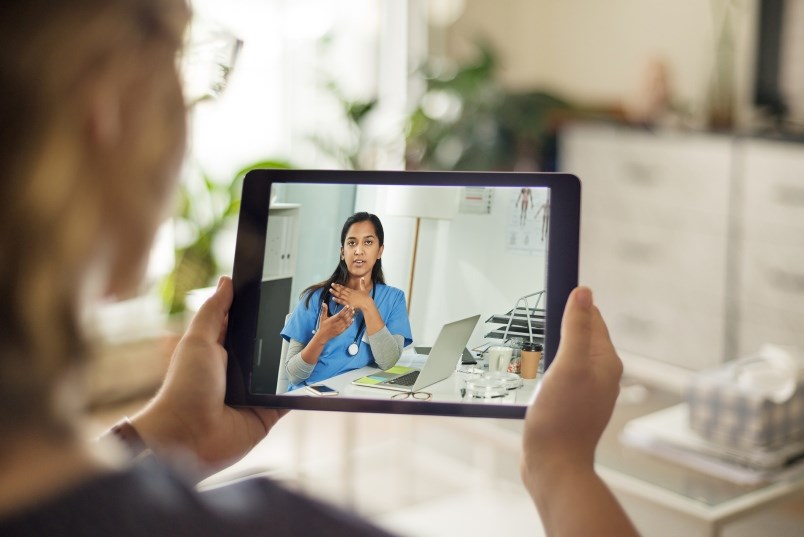Doctors in Alberta are worried more patients are putting off their regular visits and aren't reaching out for care until their medical emergencies are life-threatening.
Dr. Jim Bell, family physician at Grandin Medical Clinic, said there is still a fair degree of anxiety from patients about the prospect of having to go into the clinic or hospital emergency department.
"There has been a tendency for people, when they're having symptoms that are potentially serious, to put off doing anything about them because of the concern they might be exposing themselves to COVID-19 by going into the doctor's office or going into the emergency room," Bell said.
Alberta Health Services has seen a decrease in emergency department visits across the province since early March. Anxiety over COVID-19 is thought to be one likely reason for this, according to an AHS spokesperson. As concerns over COVID ease a little, AHS is now seeing a return to normal emergency department volumes.
But questions remain about the health of patients who decided to push aside their symptoms and not seek out help.
"We do know that the number of patients showing up in the emergency room with heart attacks has dropped significantly over this time," Bell said.
"The question is then, is that because they're sitting at home doing nothing and not putting any stress on their heart? Or are they ignoring symptoms that they should be paying attention to?"
Most chest pain that people experience is probably not cardiac, Bell said, and doctors can learn a lot just going through the history of symptoms over the phone. But in some cases, red flags start to go up, and it becomes apparent that the patient needs to be seen sooner rather than later.
"There have been several patients I've talked to on the phone who were having symptoms that really did need attention, either abdominal pain, chest pain, or something that suggested there's more serious underlying disease going on. But they were reluctant to seek out help."
While patients are encouraged to call in first, hospitals and doctors offices remain safe places for people to receive care if they need it, Bell said. Family doctors have quickly adjusted to the pandemic so they could safely deliver health care services to patients.
"Our office is as safe as any place in the community, probably safer than going to a grocery store at this stage of the game. This is largely because we're spending quite a bit of time screening patients to make sure that they really need to come in."
People can now be seen quickly from their own homes using teleconferencing; everything from prescription renewals and blood pressure to mental health can be addressed over the phone.
Doctors are putting in place increased safety measures if patients do need to come in to the clinic. Reducing the number of doctors working inside the clinic and dealing with as many problems as they can over the phone has kept waiting rooms from seeing anything more than two or three people at a time.
Patients are asked to wear masks, doctors are equipped with personal protective equipment, and exam rooms are cleaned thoroughly after every patient, Bell said.
But especially during a pandemic, it's always best to be safe than sorry.
"If possible, stay with a doctor that knows you the best. And if you need to go to a doctor's office, we're all working hard to try and make doctor's offices as safe as we possibly can."


.jpg;w=120;h=80;mode=crop)

